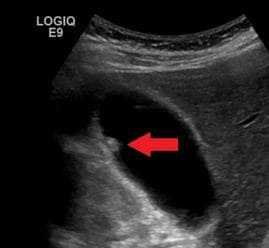When discussing the potential health effects of chronic stress, one of the most debated topics is its relationship with cancer. Can psychological stress directly cause cancer, or is the connection more nuanced?
Is Stress a Direct Cause of Cancer?
The scientific consensus is clear: chronic stress does not directly cause cancer. According to the National Cancer Institute (NCI), there is no substantial evidence to suggest that stress independently leads to the development of malignant tumors. While the idea persists in popular culture, rigorous studies have failed to establish stress as a primary cause of cancer.
For instance, a comprehensive meta-analysis by Heikkilä and colleagues (2013) examined the impact of work-related stress on cancer risk. With over 217,000 participants, the study found no significant association between workplace stress and the incidence of cancer. Similarly, the American Cancer Society (ACS) confirms that while stress affects overall health, its role as a direct cancer trigger remains unsubstantiated.
How Does Stress Indirectly Influence Cancer Risk?
While stress itself may not cause cancer, it can influence factors that increase susceptibility to the disease. Chronic stress affects the body’s immune and endocrine systems, potentially creating conditions that facilitate cancer progression or increase vulnerability to known risk factors. Let’s break this down:
- Immune System Suppression: Prolonged stress can impair the immune system’s ability to detect and destroy abnormal cells. Research suggests that chronic stress may reduce the effectiveness of immune surveillance mechanisms, increasing the chance of abnormal cells surviving and proliferating.
- Chronic Inflammation: Stress-induced inflammation has been linked to various diseases, including cancer. Persistent inflammation creates a favorable environment for tumor growth and metastasis.
- Hormonal Imbalance: Stress triggers the release of cortisol and other stress hormones. Prolonged elevation of these hormones can disrupt the body’s hormonal balance, potentially influencing cancer development or progression.
Behavioral Changes Due to Stress and Associated Cancer Risks
| Behavior | Cancer Risk Contribution |
|---|---|
| Smoking | 90% |
| Overeating | 70% |
| Alcohol Consumption | 60% |
| Lack of Physical Activity | 50% |
Behavioral Changes Under Stress
Stress often leads to lifestyle changes, some of which are associated with an increased risk of cancer. Behavioral responses to stress, such as smoking, excessive alcohol consumption, overeating, and neglecting physical activity, contribute significantly to overall cancer risk.
For example, a stressed individual may resort to smoking as a coping mechanism. Smoking is a well-documented risk factor for lung, throat, and other cancers. Similarly, stress-induced overeating can lead to obesity, which is linked to cancers such as breast, colon, and pancreatic cancer.
What About Cancer Progression and Survival?
The influence of stress on cancer progression and survival is less clear. Some studies suggest that psychological support can improve quality of life and, in some cases, clinical outcomes for cancer patients.
However, meta-analyses, including one by Chida et al. (2008), indicate that there is no definitive evidence linking stress levels to survival rates. The potential benefits of stress management for cancer patients lie more in enhancing overall well-being than directly improving survival odds.
Did You Know?
- Chronic stress may alter DNA repair mechanisms. Some studies suggest that prolonged stress can impair the body’s ability to repair damaged DNA, a critical process in preventing cancer development. (Source: National Cancer Institute)
- Stress-related inflammation is a double-edged sword. While acute inflammation helps heal injuries, chronic inflammation associated with stress can contribute to a microenvironment conducive to cancer. (Source: Nature Clinical Practice Oncology)
- Job strain and cancer risk are not linked. A large-scale European study involving over 200,000 participants found no evidence that job strain contributes to cancer risk. (Source: BMJ)
Prevalence of Stress in Cancer Survivors
| Stress Level | Percentage of Survivors |
|---|---|
| Low | 40% |
| Moderate | 35% |
| High | 25% |
Editorial Advice
Understanding the relationship between stress and cancer highlights the importance of holistic health. While stress is not a direct cause of cancer, its impact on lifestyle and physiological processes cannot be ignored.
Prioritize stress management techniques—whether through exercise, hobbies, or counseling—to support your overall well-being. And remember, maintaining a healthy lifestyle is one of the most effective ways to reduce cancer risk.
About the Author
Reyus Mammadli is the author of this health blog since 2008. With a background in medical and biotechnical devices, he has over 15 years of experience working with medical literature and expert guidelines from WHO, CDC, Mayo Clinic, and others. His goal is to present clear, accurate health information for everyday readers — not as a substitute for medical advice.







